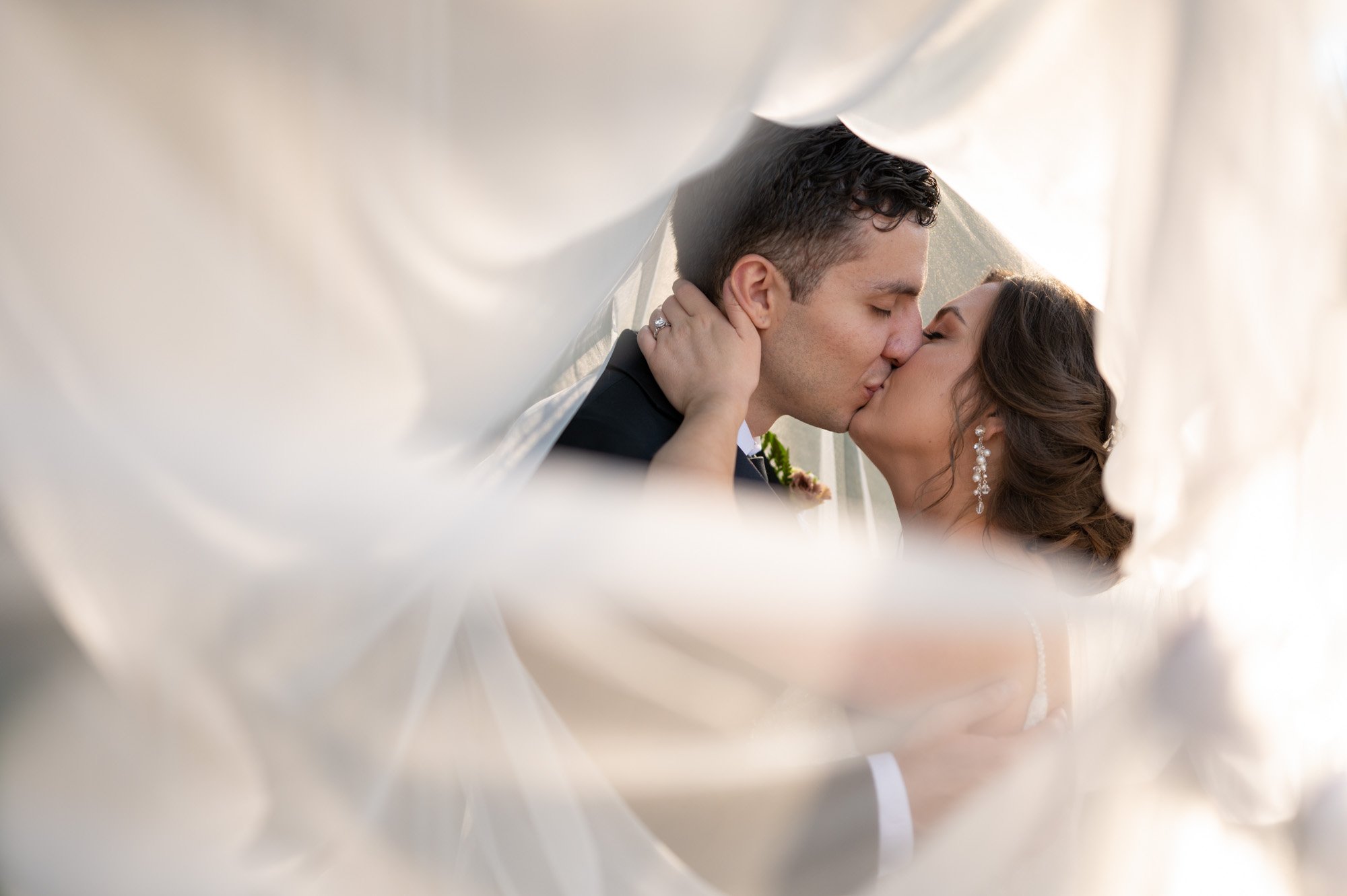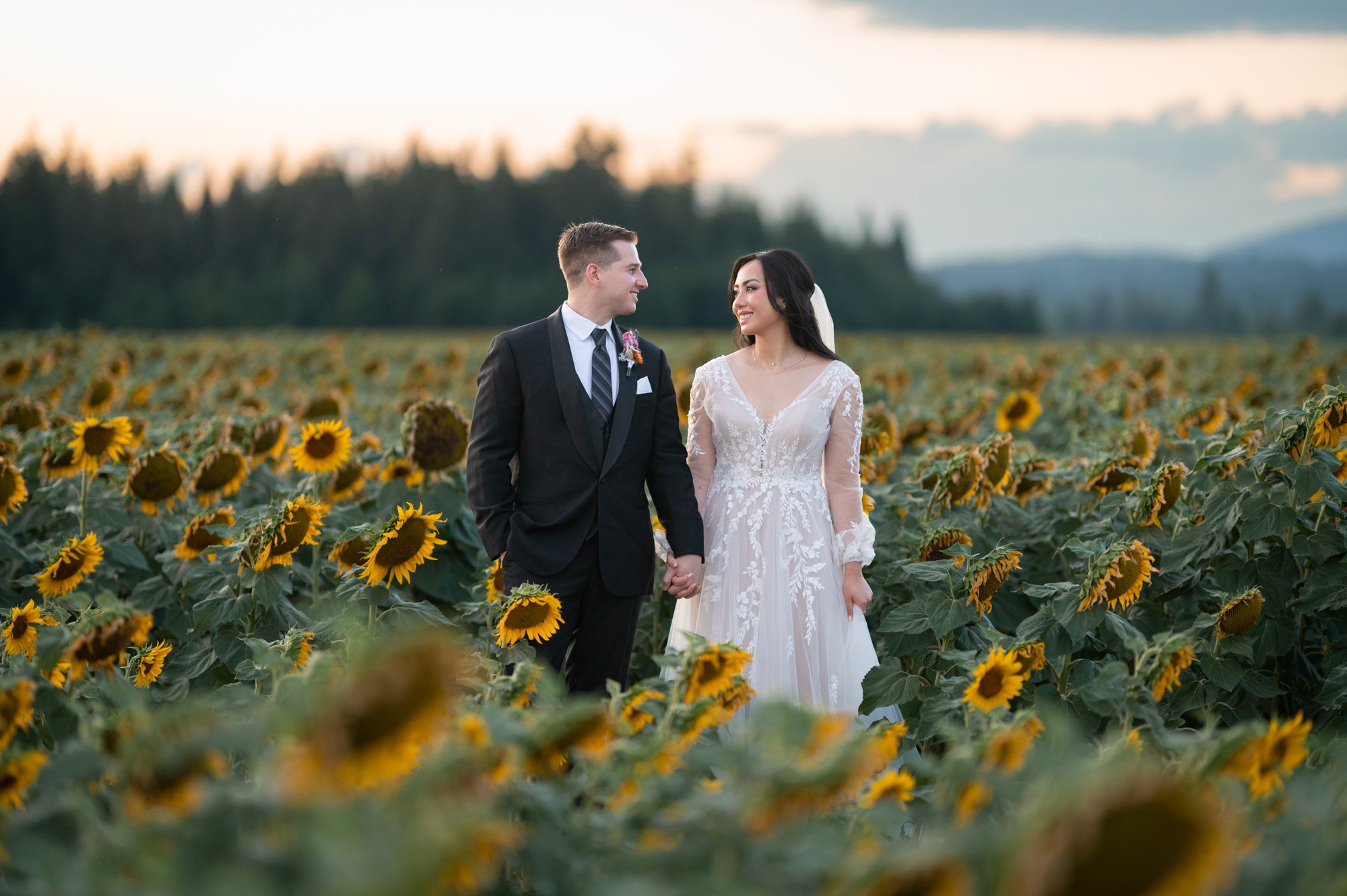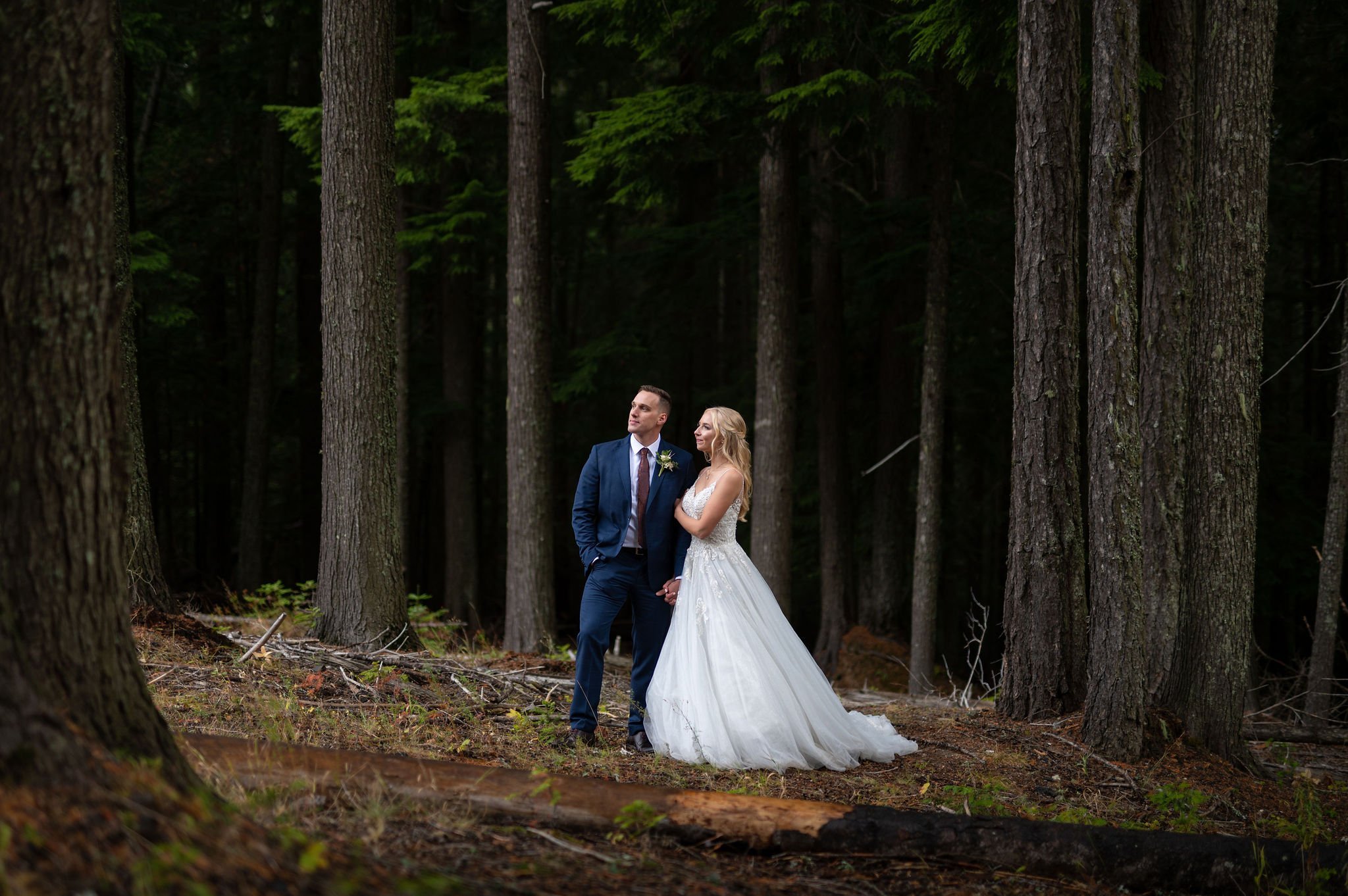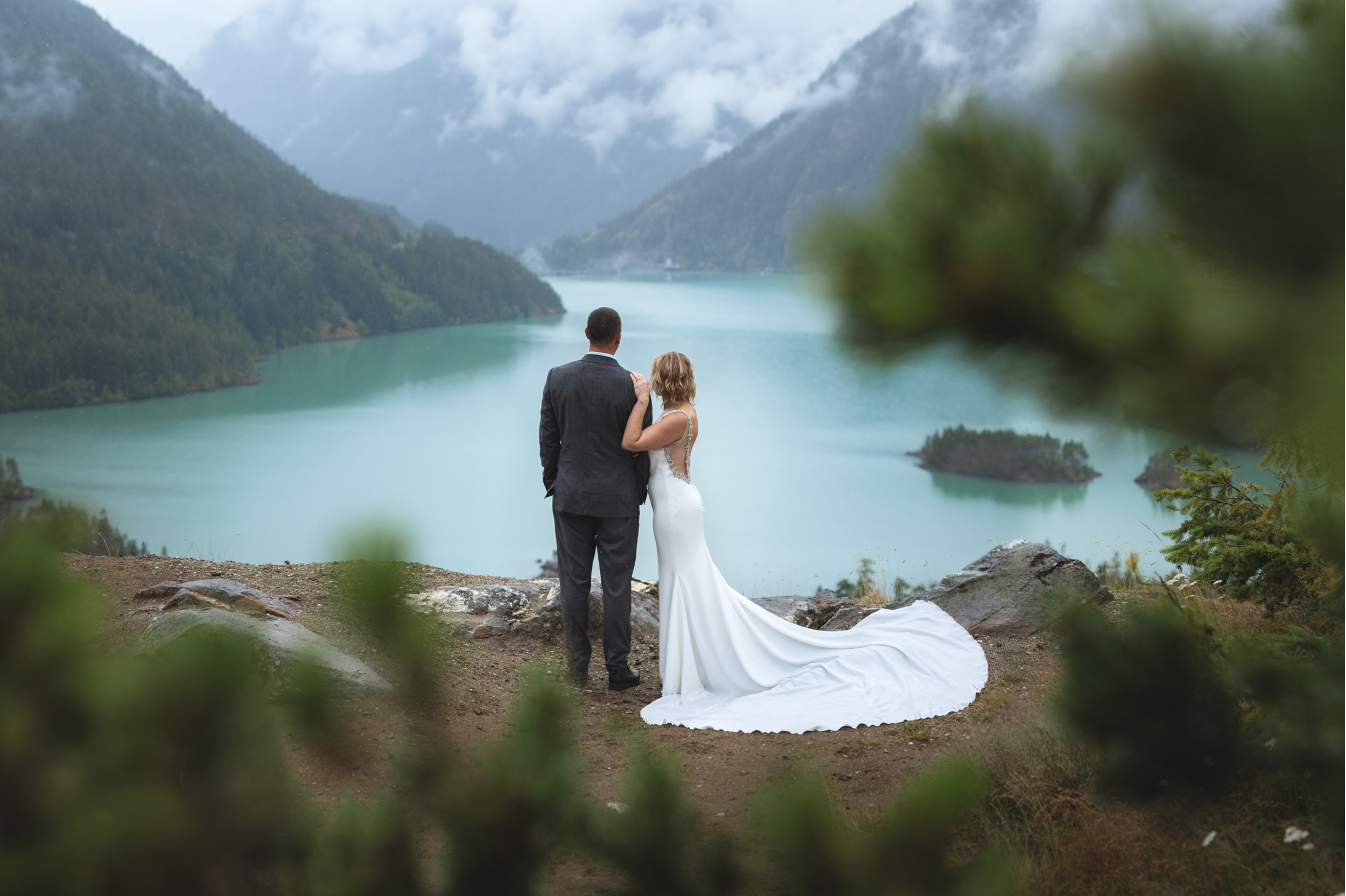The Best Cameras for Wedding Photography in 2024

My Criteria for the best cameras for wedding Photography
I have been in the wedding industry for almost a decade and have had the opportunity to capture and edit photos from just about every wedding camera on the market. I have worked with professionals who use every system and gotten feedback from when what they like and do not to provide you with this list of the best cameras for weddings in 2024. My reviews are based on my own experience and that of full time professionals I have worked with over the years that are the best in the field. I personally photograph over 40 weddings a year and am the highest reviewed photographer in my area.
When it comes to cameras, there are many people out there who look at and talk about specs and pixel peep all day but this article made by people who are professionals who actually work in the field, capturing hundreds of weddings a year. Contrary to what some people believe, the best cameras for weddings are not the “flagship” models; but are instead the mid range pro bodies. As a wedding photographer, there are three main things to consider when it comes to your camera body: sensor size, resolution, and autofocus (and more specifically, subject tracking).
Sensor size
When considering a camera for weddings, sensor size is of upmost importance. After years of capturing images in all kinds of conditions, I recommend that you only purchase cameras with full frame sensors. Full frame sensors are important because they allow the camera to capture crisp images with low noise in dark conditions; providing clients with the best possible image quality. I have ran into photographers who believe that crop sensors are acceptable for weddings but it is just not true. When comparing image quality side by side, the difference is astronomical.
Resolution
Contrary to belief, the best cameras for weddings and low light are not the cameras with a high megapixel count. There are two reason for this. The first is that a high megapixel count creates huge file sizes. Wedding photographers process and edit tens of thousands of images a year and larger file sizes load and process much slower than ones that are smaller (duh!). So unless you want to buy a computer with the best processing speeds or wait much longer for photos to import and export, I’d highly recommend looking for a sensor size around 20 - 30 MP. At this resolution, clients can still print off images that are 40” x 60” with ease (and how many people actually print off large sizes? - the answer is not many) and no noticeable pixelation. This is especially true if you are good at getting the framing right in the moment and do not have to crop in like crazy when editing. I personally own a Nikon Z7 II (45.7 MP) for landscapes and leave it behind for weddings in favor of my Z6 II’s (24.2 MP). Never once have I wished I used it instead for weddings.
Something I want to touch on briefly was my comment on the low light performance. I am a huge nerd (thanks to studying engineering in college for four years) and so I briefly want to explain why cameras with a lower pixel count perform better in low light when they are a camera body of the same generation (being almost identical sensor technology between models). It is actually quite intuitive but a little known fact people are aware of. Remember how full frames are better at processing light than crop sensors due to surface area? It is the same thing with full frame sensors with a lower pixel count. Each pixel in the lower resolution sensor has a larger surface area on the sensor compared to the higher resolution sensor, thus allowing more light to be processed on each pixel. The result is that each pixel is clearer and thus the noise is lower.
Subject Tracking
Here’s a little confession for you all… I used to be one of those photographers who was slow to jump on new technology. I was one of those guys who was against the “fad” of going mirrorless for a couple years. It was not until I got to try a fellow photographer’s Z6 at a wedding (Nikon’s first mirrorless generation) that my mind was changed and I quickly jumped ship. The reason? Subject tracing; and in particular, eye tracking technology. Truth be told, if you are still using a DSLR, I would reocmmend jumping to mirrorless for this feature alone. It is truly revolutionary and results in astronomically better images for your clients.
Before going mirrorless, I shot with the Nikon D850 which was said to have the best autofocus in the industry of DSLR’s. It was good; but when I bought my first Z6, it quickly became a glorified paperweight. Where the D850 got 1/3 images in focus during low light conditions, the Z6 hit focus perfectly 9/10 times. Getting amazing photos during receptions with fast motion and low light became a breeze. All that being said, get a mirrorless if you plan to photograph weddings or portraits.
The best cameras for wedding photography BY BRAND
Now that we know what to look for in a camera for wedding photography, here are my top picks for each brand:

Nikon Z6 II
Price: $1,996.95 (Amazon)
Specs:
Sensor: Mirrorless, Full Frame, 24.2 MP
Screen: 3.2-inch tilting touchscreen
Max burst speed: 14 fps
Main takeaways: If you own Nikon lenses or are looking to buy a Nikon camera for wedding photography, the Nikon Z6 II is hands down the best option for you. I personally own four Z6 II’s and a Z7 II (my wife is also a full time professional photographer) and I never find myself wanting more camera. The resolution is perfect and the low light performance is incredible. If you would like to read more about my experience with the Z6 II, check out my Nikon Z6 II Review for Wedding Photography.

Sony A7 IV
Price: $2,498.00 (Amazon)
Specs:
Sensor: Mirrorless, Full Frame, 30.0 MP
Screen: 3-inch fully articulating touchscreen
Max burst speed: 10 fps
Main takeaways: The Sony A7IV is a fantastic camera. If you plan to do any video professionally or have Sony glass, I would strongly recommend buying this camera body. As with the other brands, there are of course upgrades you could opt to buy like the Sony A7RV but I personally do not think the upgrade is worth the price tag ($3,898.00 on Amazon) for wedding photography alone. If you plan to do video and have the extra budget then it may be of consideration but for just stills, the A7IV is perfect.

Canon EOS R6 II
Price: $2,499.00 (Amazon)
Specs:
Sensor: Mirrorless, Full Frame, 24.2 MP
Screen: 3-inch fully articulating touchscreen
Max burst speed: 30 fps
Main takeaways: The Canon EOS R6 II is an amazing camera. I have personally used this camera on a few occasions and have no qualms with it. if you are a Canon photographer, I would strongly recommend you purchase this camera for weddings. You can of course opt to buy the Canon EOS R5 ($3,499 on Amazon); with the main benefit being the resolution (45 MP) but I do not personally think it is worth the price tag nor is the resolution that beneficial for wedding photography.

Fuji X-T4
Price: $1,549.00 (Amazon)
Specs:
Sensor: Mirrorless, APS-C , 26.1 MP
Screen: 3-inch vari-angle touchscreen
Max burst speed: 15 fps
Main takeaways: The Fuji X-T4 is just about the only camera I have had experience with or recommend (barely) if you want to use a Fuji camera. To be completely honest, I know Fuji owners will hate me for saying this, but I do not think they have the best cameras for weddings. This camera is a crop sensor as are most of their cameras so I would recommend choosing one of the big three listed above unless you absolutely have to have a Fuji camera.
Final Thoughts
I hope this article proved to be useful to you. In today’s camera market, it is hard to go wrong with your camera purchase for wedding photography (unless you go Fuji - sorry). Every camera listed above has the ability to capture stunning images and at the end of the day, the camera is only as good as the one who holds it. There really is no wrong choice. However, as always, if you agree, disagree, or have any questions, feel free to leave a comment below!
If you would like to see more of the gear I use for weddings, be sure to check out the Complete List Of The Wedding Photography Gear I Use. If you’d like to see what gear I prefer for my outdoor landscapes and travel photography, check out What's In My Bag - A Complete List Of The Landscape Photography Gear I Use.
This article contains Amazon Affiliate links. If you make a purchase via one of these links, I will receive commission at no additional cost to you. As always, thank you for your support!

The Best Cameras for Wedding Photography in 2024
Written by: Zach Nichols
January 20, 2024
© Zach Nichols Photography
Comments (13)
Hi Zach,
Do you have a recommendation on lenses for the Z6 III?
Hi Zach
Glad to see my camera (Canon Eos R6 11) make your list. Saying that I will be upgrading to the R5 as I love the 45 megapixel sensor.
Hi Zach,
Iam a newer photographer who currently is in the market to upgrade to a professional camera body. I currently use Canon's mirrorless R50 but am considering jumping ship to Nikon as i have read so many bad reviews on canons R6 MII. I am a little overwhelmed at which camera i shout shoot with. Right now, i do a little bit of everything but mainly portraits and wanting to get into weddings.
Which camera would you recommend for a good overall use camera that would be useful for weddings too?
Hello,
Thank you for reaching out! For portraits and weddings the Z6II is definitely my top recommendation but if you can wait their Z6III should be announced very soon. If you feel that you need more camera, the Z8 would be the next step up all-around and is the best hybrid option from Nikon.
Hi Zach. First of all, I love all of your articles they are so useful as I’m quite new in photography world.
I’m planning to buy a mirrorless camera but I’m hesitating about getting Z8 or Z6ii. It’s mainly for portrait and I’m starting to do the wedding as well. So until this time that you’re using both z8 and z6ii, which one would you recommend for me?
Cheers
Hello,
Glad you like the articles! I would recommend the z6II (or wait for the z6iii that should be released later this year) if you only plan to do portraits. The z8 is amazing for video and being a hybrid camera. You don't need it for portraits though it would still be amazing if you did go that route. Hope this helps!
-Zach
Thanks for this great writeup! Lifelong Nikon shooter here but all my gear was recently stolen (the joke is slightly on the thieves.. my gear was VERY well used). Mainly shot weddings and commercial/events via 3 D780 bodies and prime lenses. I'm thinking of jumping ship to Sony. The A7III and it's 12 mp sensor is very appealing. Any thoughts on that VS the A7IV? In 15 years of commercial photography I've never once been asked about megapixels and my favorite size was the Nikon D700 12mp sensor! Thanks so much for your thoughts
Ah I'm sorry to hear even still! I hope you had insurance on it. That's a tough one but for $500 more I think I would personally go with the A7IV. I really like the extra bit of MP that it brings as well as the newer tech. I am a hybrid shooter and love cameras that are in that 30-40MP range. Though 24 is plenty for most things, I do some work where I prefer having more; especially with my outdoors and landscape photography. If you plan to only use them for weddings and portraits and nothing else then I'd probably save the $$$ and go with the older camera but I do think the tech will be noticeably better. Even with Nikon, the snappy focus and features have been worth the upgrade between generations to me. Hope that helps some.
Does the Sony A7IV have better focus than the Nikon Z6 II? I hear it's much harder to focus, especially in the dark/Nikon Z6 II/. I'm currently with a Nikon d750. Thanks!
In my experience, both will focus quite well in low light. If you are coming from a D750, you will be blown away with either; but keeping in the Nikon family of gear may save you a lot on lenses since you can still use the F-mount options with the adapter. I do this and there is no distinguishable difference in quality between the F-mount and Z-mount lenses.
Thanks for the article-
I've shot 500+ weddings so far, More like 1000 over 30 years a d after going through the camera routine I found I was most interested in the color of the shot and the strobe shutter speed match up- so.... I almost always use my nikon D40 6mp-
I've done magazine covers, NY Times- Gourmet Magazine and on- There is no strobe shutter speed to contend with so on a beach I can set my Sunpak 555 handle flashes to F-8 and use a shutter speed of 800th for a fill flash- great for beaches! I buy every D40 i can get- If they complain about the image size I just give them tiffs- https://www.flickr.com/photos/41420754@N03/. (Most shots are over 15 years old)
Hi Zach,
I’m currently considering the top 3 options, but with the release of the Canon R6 MK II, does that take over the top spot for Canon? Or would I be best served with the R6 and using the extra money toward glass?
That is a great question. I imagine since you are here you are a wedding photographer. Spec wise it could take the top spot for sure but if you just shoot photos of people you will not see much a difference between models. Whenever new models are released, the old ones can be picked up used for an INCREDIBLE price as people dump theirs to get the new version. If it was me, I'd buy one of these used ones in great condition and low shutter actuations with a US warranty card included and then spend my money on glass or pocket the difference. If you plan to buy new, it appears you are only saving around $300 for the old version so I'd either wait for that price gap to increase or make a decision for yourself on that part. I personally don't think you'll see a remarkable difference unless you shoot 4K consistently. Though I do primarily shoot Nikon, I have used many R6's in the past.